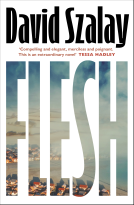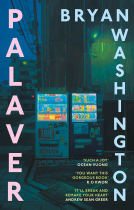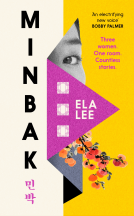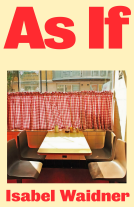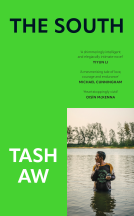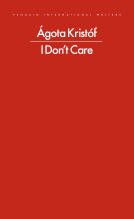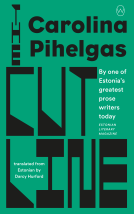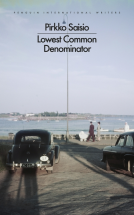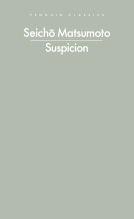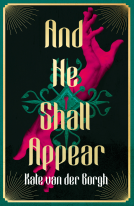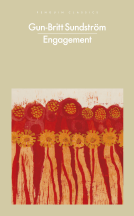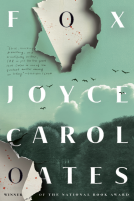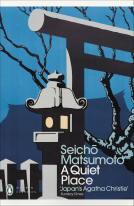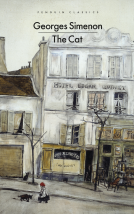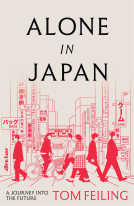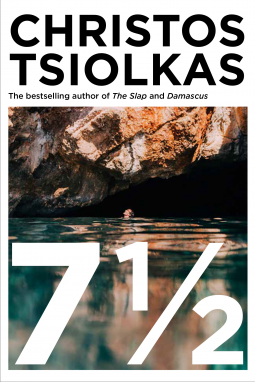
7 ½
by Christos Tsiolkas
This title was previously available on NetGalley and is now archived.
Send NetGalley books directly to your Kindle or Kindle app
1
To read on a Kindle or Kindle app, please add kindle@netgalley.com as an approved email address to receive files in your Amazon account. Click here for step-by-step instructions.
2
Also find your Kindle email address within your Amazon account, and enter it here.
Pub Date 3 Feb 2022 | Archive Date 7 Feb 2022
Talking about this book? Use #7½ #NetGalley. More hashtag tips!
Description
An audacious and transformative novel on the past, the present and the power of writing from the award-winning author of Damascus.
A man arrives at a house on the coast to write a book. Separated from his lover and family and friends, he finds the solitude he craves in the pyrotechnic beauty of nature, just as the world he has shut out is experiencing a cataclysmic shift. The preoccupations that have galvanised him and his work fall away and he becomes lost in memory and beauty.
He begins to tell us a story ...
A retired porn star who is made an offer he can't refuse for the sake of his family and future. So he returns to the world he fled years before, all too aware of the danger of opening the door to past temptations and long-buried desires. Can he resist the oblivion and bliss they promise?
A breathtakingly audacious novel by the acclaimed author of The Slap and Damascus about finding joy and beauty in a raging and punitive world, about the refractions of memory and time and, most subversive of all, the mystery of art and its creation.
Available Editions
| EDITION | Hardcover |
| ISBN | 9781838955656 |
| PRICE | £14.99 (GBP) |
Average rating from 10 members
Featured Reviews
I've read three books by Christos Tsiolkas and this is not like them. It is provocative, it is very reflective.
The book is about a man who goes away to write, away from everyone and in solitude.
It is beautifully written and seems especially written for our age.
Source of book: NetGalley (thank you)
Relevant disclaimers: None
Please note: This review may not be reproduced or quoted, in whole or in part, without explicit consent from the author.
What’s with all the … um. Is the technical term autofiction? Especially in queer fiction? Although to be fair—apart from the autofictional (I think I hate that word?) elements, this otherwise has nothing in common with Edmund White’s A Previous Life, which I read recently.
In any case, 71/2 concerns the novelist, Christos Tsiolkas. Or, y’know, a semi-fictionalised version of the novelist Christos Tsiolkas called Christos Tsiolkas. He’s taken himself on a solitary writing retreat to the coast New South Wales, intending to write a novel—a novel he doesn’t want to be about politics, sexuality, race, gender, history, morality or the future. Because apparently—having lived through one global crisis after another—he’s bored of those things. Instead, he decides to write about beauty, winding together several narratives: one being the novelist’s experiences of the natural of the world during his retreat, another concerning his memories of his childhood and adolescence, a third being his thought processes in writing the novel about a former gay porn star that is yet another strand of the actual book. I guess what’s kind of remarkable about all this is that does come together into something coherent, meaningful and surprisingly organic, the story flowing effortlessly from memory into fiction, from reality into fiction, and then deeper into the meaning and structure of fiction itself.
And it is, by the way, a very beautiful book—whether it’s describing the New South Wales, the quiet tenderness of the fictionalised novelist’s long-term relationship, or the erotic fascinations of the various men who inhabit the text.
But I also don’t quite know what to make of it. That it has made me thoughtful—particularly about writing, the act of writing, the act of writing as a response to the trauma of the world—I am inclined to appreciate. And yet I’m also inclined to dispute both its central thesis (that beauty must be antithetical to and separate from politics, sexuality, race, gender, history, morality or the future) and its presentation of that thesis. I mean, it’s kind of a baller move to have a semi-fictionalised version of yourself tell the reader exactly what your novel is, and isn’t about, in its opening pages. The problem is, the layers of meta-text ended up being so dense to me that I got lost in them.
And listen, I know the point of Reading A Book TM isn’t to correctly interpret the closest thing you can manage to the original intent of the author (although when the author tells you their intent straight off that, in turn, sort of becomes difficult). But the thing is, I couldn’t tell to what extent we were meant to accept the position of the fictionalised novelist Christos Tsiolkas as the position of the non-fictionalised novelist Christos Tsiolkas and, therefore, the degree to which I was supposed to be taking that position at face value or whether I supposed to be viewing it critically. Because it’s not like Tsiolkas’s previous books haven’t been deeply concerned with, um, politics, sexuality, race, gender, history, morality or the future. And it’s not like it’s actually possible to create a work of art wholly insulated from those themes—especially if you’re talking about identity, which 7½ very much is, and even if you conceive of yourself as in flight from them.
So: are we to view the fictionalised novelist Christos Tsiolkas as fundamentally self-deluding? And 7½ as a novel inescapably about everything it claims not to be? On top of which I can’t quite shake the conviction that the whole sub-Wildean commitment to aesthetics above all was meant to … provoke me? And there’s nothing less provoking than something that wants to provoke you. It just makes me want to refuse the fence like an unruly pony.
I think the moment where I felt this most strongly was when the fictionalised novelist Christos Tsiolkas goes to hang out with an old friend, Andrea. He tells her he’s done with politics and the world, and she tells him she doesn’t think he’s the sort of writer who can write purely about beauty. The problem is, Andrea feels like little more than a straw…person, determined to live bitterness and strife (though the fictionalised novelist Christos Tsiolkas does not that she works for women’s shelters so she has reason to be angry). She doesn’t actually mount a single sensible challenge to the position of the fictionalised novelist Christos Tsiolkas, when there are several that could be made, and as such she’s more of an opportunity for him to, y’know, get his Grandpa Simpson on:
“I think we have to rip the pen out of the white man’s hand,” she says.
[…] “Enough with that moronic, undergraduate sloganeering. You can rip the pen or the keyboard from my white man’s hand but what are you proposing in its stead? The perpetual adolescent whine of victimhood? […] I go into a bookshop these days it is as if the shelves are filled with the agonised and narcissistic rantings of teenagers.”
Later, it becomes less Controversial By Numbers (although he does take a random potshot at The Colour Purple, of all books to complain about) and more personal: about how the fictionalised novelist Christos Tsiolkas is tired of anger and doesn’t feel either anger, or progressive politics, have achieved all that much. That, to me, feels more nuanced and more useful than what otherwise essentially amounts to “Twitter = bad.” Y’know, for a book that is so preoccupied with the way so many boundaries we are overly inclined to see as impermeable (fiction/reality/memory/compassion/the erotic/) are, in fact, the reverse 7½ strikes me as also somewhat stuck in self-inflicted dichotomies: that beauty can only exist outside of politics, that anger is always futile, and that if you take the pen/keyboard from white men all you’re left with are texts of victimhood.
Which is irritating, and not I think, in the way it wants to be irritating. Ultimately, its anti-political posturing just feels dishonest. Ungenerous in a way that the rest of the book is not. Because as I said above, it is also exactly what it sets about to be: beautiful, hopeful, unexpectedly soothing.
This book hovers in a place between novel and auto-fiction memoir, and I thought slowly revealed itself to be much deeper than the slightly fragmented stories that the book seems to present at the beginning.
Indeed, the small fragments introduced and then built on early into the book then start to come together at the end quite interestingly. For example, early on, Tsiolkas muses on the idea of what a novel does, what storytelling is all about, and on writing a novel about beauty. He then goes on to explore his nascent sexuality as a child, and how there are echoes of that in his current life.
However, it then did something quite interesting, and almost deconstructed the idea of what a novel of beauty would be, showing us behind the scenes as he creates a character named after a porn star he had a crush on, and gives other traits and names to characters based on other people he knew.
This 'behind the scenes' look did not always work for me, but where it did, I thought there was something quite beautiful about the meditations on love, sex and desire that underpinned those stories.
This book can feel quite fragmented, and as if it jumps quickly between various narratives and times, and that can be somewhat jarring. But I believe there was something at the heart of the book that kept me wanting to read.
I received an advanced copy of this book from NetGalley and the publishers in exchange for an honest review.
For anyone expecting something like the author’s previous work, this really isn’t. I found it a meditative, intelligent piece of auto-fiction, meta on several different levels. Occasionally bordering on pretension, but those moments far outweighed by the wisdom on creativity, sexuality, nature etc. The coastal descriptions transported me.
Readers who liked this book also liked:
Pirkko Saisio
Biographies & Memoirs, General Fiction (Adult), Literary Fiction
